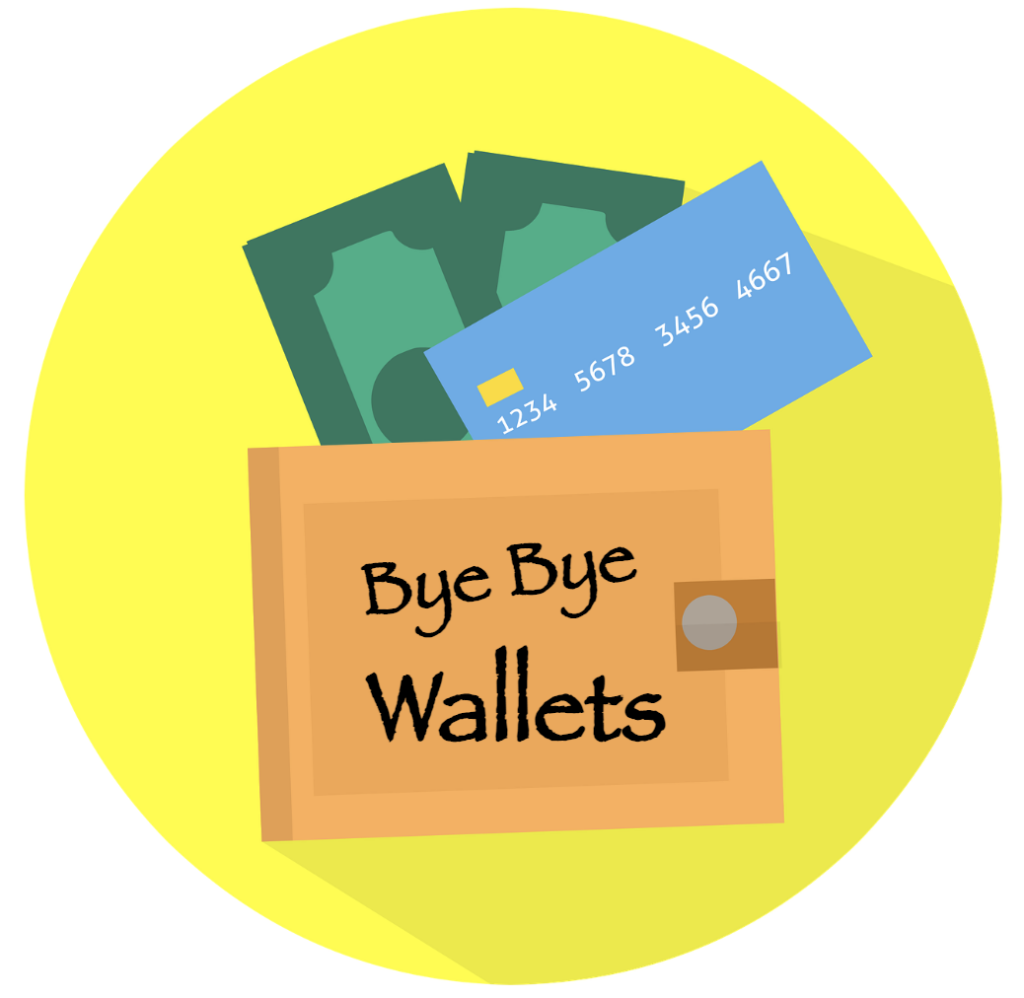App wallets are more secure than credit or debit cards because they use encryption and tokenization to protect your data.
App wallets are not accepted everywhere. You may need a physical card as a backup. However, you can minimize your wallet size and weight. Instead of carrying around a wallet filled with credit and debit cards, you can downsize a wallet to hold one credit and debit card as a backup.

What is the difference between a digital wallet versus an app wallet?
Digital wallets are mainly used for online transactions and may not necessarily get used on mobile devices. Mobile wallets get used on sight or in-store. Open an app wallet, choose the programmed card, and tap to pay. Instead of swiping a card through a magnetic scanner, tapping to pay from an app wallet helps to protect card information because of its built-in security measures. Because encryption and tokenization help protect data, there is no need for a card number to live on a device.
A digital wallet is software that stores payment methods on a personal device. Smartphones come with a pre-downloaded digital wallet. However, you can download a mobile wallet of your choice.
Introducing mobile and digital wallets to the population helps acquaint crypto wallets. The future of money is digital. CBDCs (Central Bank Digital Currencies, the Fedcoin (A Blockchain-Backed Central Bank Cryptocurrency), and cryptocurrency have started the replacement of fiat money.
Ellipal offers extra security because of its air-gapped technology.
Ellipal is a hardware cryptocurrency wallet designed to help users store, manage, and transact their digital assets securely. It is a cold wallet and operates offline, making it less vulnerable to hacking attempts and other security threats.
Click Here to read more…
Why press credit at point-of-sale? When using a debit card, press credit at point-of-sale.
The primary difference between the two is how the transaction is processed. Debit transactions require a PIN (Personal Identification Number) at point-of-sale, and money will immediately get deducted from your checking account. This option may be faster and more convenient, but it also comes with higher risks if fraudulent transactions happen, and that limits the amount of time to report fraud. You could be liable for the entire amount of the transaction.
If you choose the credit option at point-of-sale, you will not get asked to enter your PIN, and the transaction will get processed through a network like Visa or Mastercard.
If you choose the credit option at point-of-sale, you will not get asked to enter your PIN, and the transaction will get processed through a network like Visa or Mastercard.
Transactions usually take longer to appear on an account, but people will have more time to dispute fraudulent transactions. Pressing the credit option adds protections, such as liability limits or zero-liability policies, which can protect you against unauthorized charges or errors.
Account numbers are not stored on a device or shared with a merchant at the point of sale. Not having to insert a card into a machine helps to protect the account information in addition to using a passcode, fingerprint, or facial recognition before using an app wallet.
